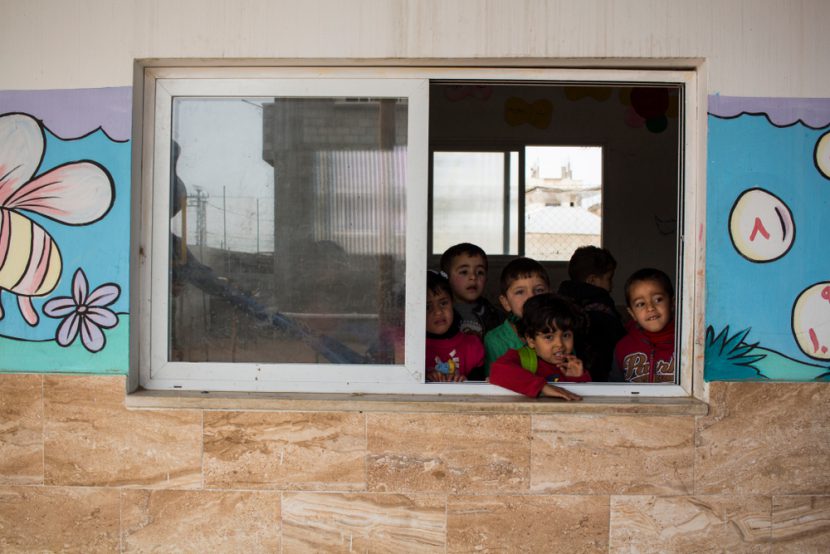For the first time, Humanium is presenting a series of chronicles. Their aim is to take us to the heart of Palestine using four themes, four views, each one shining a different light on a region that is as beautiful as it is disturbing.
Given the challenges of community life, education has a major role to play, especially in the Palestinian context. From the Latin ex ducere, the word education means “to guide/lead out of” (Education, no date). Education can therefore be summed up as the act of leading children outside of themselves, beyond their boundaries, opening their minds to a wider world and helping them flourish so they can fully participate in living together in harmony. Although children receive their initial education from their family, schools are of fundamental importance as they can provide shared foundations in terms of knowledge and living together.
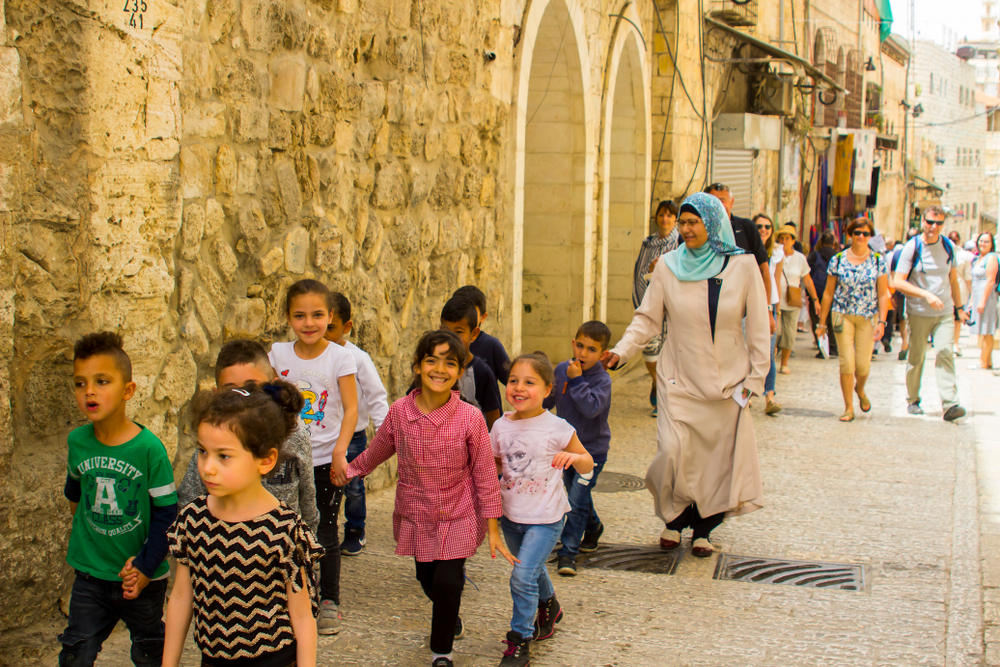
Palestinian families attach great importance to schooling (Education and teenagers, no date). This is probably related to the conflict in which Israel and Palestine are embroiled (Facts & Figures – Education, no date). The English philosopher Francis Bacon said that “knowledge is power” (Quotations, no date, Le Figaro, no date). Education can therefore be seen as a way for West Bank residents to deal with the occupation and as a source of hope for Israeli Arabs (i.e. Palestinians living in Israel who hold an Israeli identity card) that they can find a place in Israeli society.
This focus on education is reflected in the statistics: the literacy rate is around 95% (Facts & Figures – Education, no date) and almost all children are enrolled in primary school (Education and adolescents, no date). Nevertheless, while these figures may be among the highest in the Middle East, education faces many challenges in Palestine.
Due to the political situation, the environment in which Palestinian children grow up is prone to conflict. This is reflected in particular in the Israeli occupation of the West Bank, which has a direct impact on children’s daily lives. Some have to cross several checkpoints to get to school and, in some areas of the country, classes are regularly interrupted throughout the year due to attacks or military strikes (Theirworld, 2018). In some cases, roads are even closed, preventing movement from one area to another.
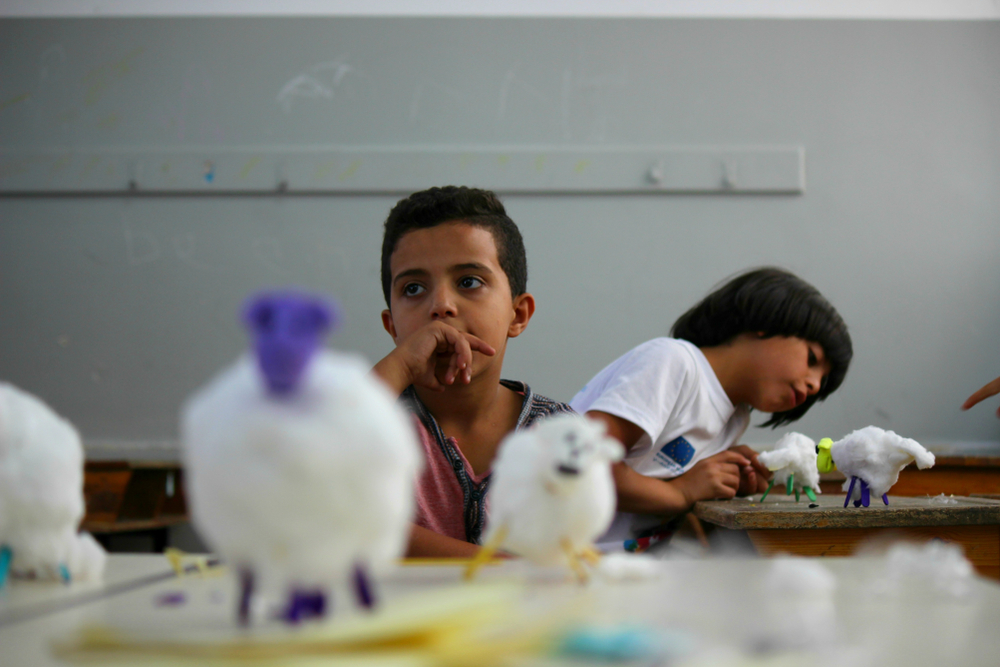
Boys, especially teenage boys, are most affected by this situation, as they are more likely to be stopped at checkpoints (Theirworld, 2018). This is one of the reasons why by 15 years old 25% of them have left school, whereas only 7% of girls are in this situation (Education and adolescents, no date). Furthermore, boys tend to think that classes are neither relevant nor useful for their lives and the challenges they must face (Theirworld, 2018). They likely consider that it is more important and worthwhile to contribute to the well-being of the family by working.
The school system also suffers from its own shortcomings. “The curriculum is often unsuitable and of poor quality,” complains Marah*, an English teacher for four to five-year-olds at a school in Jericho. “Every year the programme changes, but not in a good way.” The Palestinian school system is characterised by significant levels of inequality between pupils (Unicef, 2018).
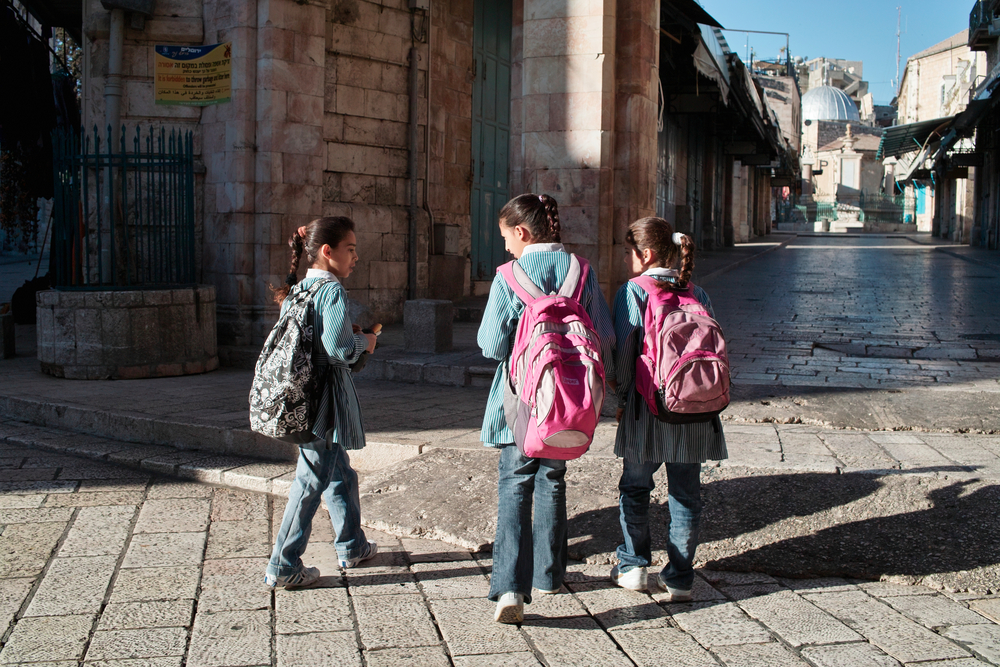
“At public schools, the programmes are very full and the children are asked to learn a lot in a short time, which doesn’t help them to absorb the material,” says Marah. “The current trend in Palestine is to think that the more difficult the programme is, the better the students will be”. This observation comes from her own experience; she first taught in the public education system before going to a school that uses other teaching methods. “At, the school I work in, Seeds of Hope, we spend a lot more time on the same topics, and so the students’ level is much better at the end of the year.”
Seeds of Hope was set up in 2008 by Tass Saada and his wife Karen (Seeds of Hope – About, no date). Known for being Yasser Arafat’s personal driver, he now wants to promote peace through his humanitarian organisations. Born in 1951 in the Gaza Strip, he grew up in a refugee camp in Saudi Arabia (Tyndale – Tass Saada, no date).
After the Six-Day War in 1967, he decided to join the Palestine Liberation Organization (PLO) with dreams of winning back his homeland (Faith Radio, 2016). Then, after realising that this led to a dead end, he left for the United States to change his life (Faith Radio, 2016). There he succeeded in business and converted to Christianity (Faith Radio, 2016). His faith inspired him to work for peace in Palestine (Faith Radio, 2016). Driven by this personal desire, he set up the organisations Hope for Ishmael and Seeds of Hope.
An atmosphere of violence prevails in most schools. According to Unicef, more than two-thirds of pupils at elementary level (the first ten years of school) are exposed to psychological and physical violence in school, either by other pupils or by teachers (Nearly 25 per cent of boys aged 15 out of school in the State of Palestine, 2018).
The Seeds of Hope school goes against the tide by seeking to offer a different educational vision, more focused on pupils’ needs and more attentive to the individual particularities of each child and giving them time to fully absorb the material. One of the main objectives of the school is to promote peace through education based on conflict resolution and living well together (Seeds of Hope – Education, no date).
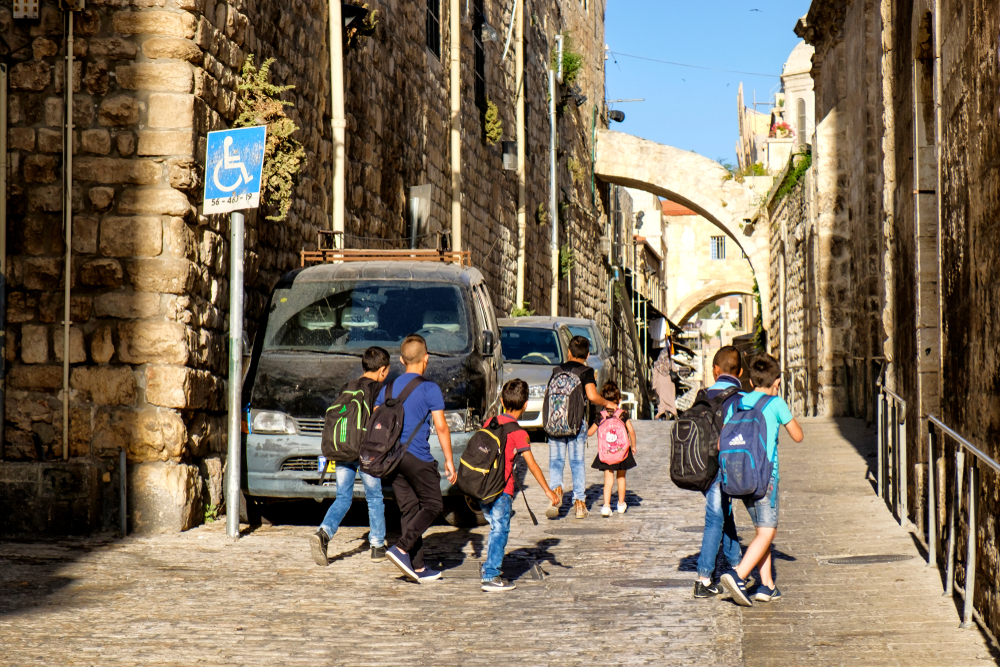
What if the role of education were precisely to bring down the “walls” that separate us and lead us beyond our impasses? Often, when we talk about education, we think of the school programme and studying, as if education only lasted a short time. If, however, we focus on the origin of the word and what it implies, education is more a way of life. As we teach our children this self-awareness and give them a taste for knowledge and going beyond limits, we should all embody this ideal. More than educators, we should be role models.
*Alias
Written by Alexis Baron
Translated by Andre Bywater
Proofread by Holly-Anne Whyte
References
(no date) Accessed on 29 October 2019, Le Figaro: http://evene.lefigaro.fr/citation/vrai-pouvoir-connaissance-19353.php
Cardwell, L. (s.d.). The State of Girls’ Education in Palestine. Accessed on 30 October 2019, The Borgen Project: https://borgenproject.org/the-state-of-girls-education-in-palestine/
Quotes. (no date). Accessed on 29 October 2019, Linternaute: http://www.linternaute.com/citation/auteur/francis-bacon/17083/connaissance/109/1/
Education. (s.d.). Accessed on 28 October 2019, La Toupie: http://www.toupie.org/Dictionnaire/Education.htm
Education and adolescents. (no date). Accessed on 30 October 2019, UNICEF: https://www.unicef.org/sop/what-we-do/education-and-adolescents
Facts & Figures – Education. (no date). Accessed on 29 October 2019, Palestine Link: http://www.palestinelink.eu/palestine/facts-and-figures/education/
Faith Radio. (31 December 2016). Tass Saada’s journey from assassin to peacemaker. Accessed on 4 November 2019, Faith Radio: https://myfaithradio.com/2016/tass-saadas-journey-assassin-peacemaker/
Nearly 25 per cent of boys aged 15 out of school in the State of Palestine. (2018, Juillet 26). Accessed on 4 November 2019, UNICEF: https://www.unicef.org/press-releases/nearly-25-cent-boys-aged-15-out-school-state-palestine
Seeds of Hope – About. (s.d.). Accessed on 3 November 2019, Seeds of Hope: https://seedsofhope.org/about/
Seeds of Hope – Education. (s.d.). Accessed on 5 November 2019, Seeds of Hope: https://seedsofhope.org/education/
Theirworld. (2018, August 1). Why one in four Palestinian boys drop out of school by the age of 15. Accessed on 31 October 2019, Theirworld: https://theirworld.org/news/quarter-of-palestinian-boys-drop-out-of-school-by-15
Tyndale – Tass Saada. (s.d.). Accessed on 4 November 2019, Tyndale: https://www.tyndale.com/authors/tass-saada/1146
Unicef. (2018). State of Palestine – Country report on out-of-school children. Accessed on 29 October 2019

